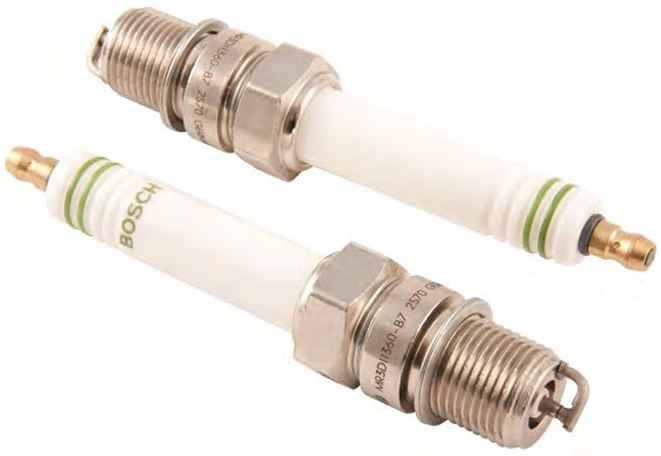
Industrial spark plugs are a vital part of all gas-powered combustion engines. They light the gas and air mixture as it enters the engine, moving the cylinders. Most modern iridium and platinum industrial spark plugs are rated by their manufacturers to last for dat least 3500 hours of continuous use. However, some plugs inevitably fail or degrade before their time is officially supposed to be up.
2000 hours is the average lifespan of a standard industrial spark plug.There are a wide variety of engine faults that can be caused by bad installation, malfunctions, misuse, contamination, or simple bad luck.
Here are some of the most common reasons cited for premature industrial spark plug failure.
1. Ceramic Punctures
Punctures in the ceramic casing that insulates the unit, and protects the rest of the engine from the spark plug’s heat, can cause the spark plug to degrade. Damage to other components can occur through misdirected heat dissipation.
Cracks, holes, and chips can be caused by impact damage, wear and tear, and intense over-volting. Always make sure your spark plug is rated for the coil you’re using it with. Take care when storing and handling your spark plugs – the casing is sometimes fragile.
2. Socket and Plug Damage
A botched installation of a spark plug into a wrenched socket can cause the plug to perform poorly and wear out quickly. The plug has to work harder to transmit and convert the electrical charge into a spark if it’s misaligned, skewed, or tightened incorrectly. Poorly performed installations can end up cracking or denting the plug itself. Awkward or rushed removals can also damage spark plugs, especially when transferring a working plug between engines.
Always make sure your spark plugs are installed by a qualified technician with a wide bore torque wrench with the correct socket. Manual, rushed installations without the right tools, or the use of a jury-rigged socket with incompatible supports, run the risk of damaging the spark plug.
3. High Electrode Wear
Simply put, spark plugs that are used more often at higher voltages and for longer periods without stopping will wear out faster than expected. If you’re going to be running high-power, high-intensity industrial engines constantly, plan for more frequent spark plug replacements.
4. Heat Damage
Spark plugs and combustion engine interiors both generate large amounts of enclosed, intense heat. Overheating, often caused by poor ventilation and a lack of exhaust dissipation, causes internal damage to metallic spark plugs that can greatly reduce their lifespan. Excess heat also generates a build-up of fractured iron and carbon deposits, increasing resistance.
Some engines may cut out automatically if the machine is running at an unsafe temperature. If this happens and you can’t find fault with the spark plugs, check the rest of the engine for an exhaust issue.
5. Outside Contamination
Make sure your spark plugs are kept as clear of oil and debris as possible. Long-term build-ups of resistant and corrosive fluid can damage the spark plug’s contacts and casing.
Spark Plugs From RM Walsh
While it’s always good to keep your existing spark plugs in top condition, you’ll need to replace one or two eventually. RM Walsh can help. We supply spark plugs to industrial buyers throughout the United Kingdom. Contact us today for more information!
 Apply for an Account
Apply for an Account Log In
Log In 0Basket
0Basket Checkout
Checkout
 01782 983376
01782 983376 info@rmwalshltd.co.uk
info@rmwalshltd.co.uk 
